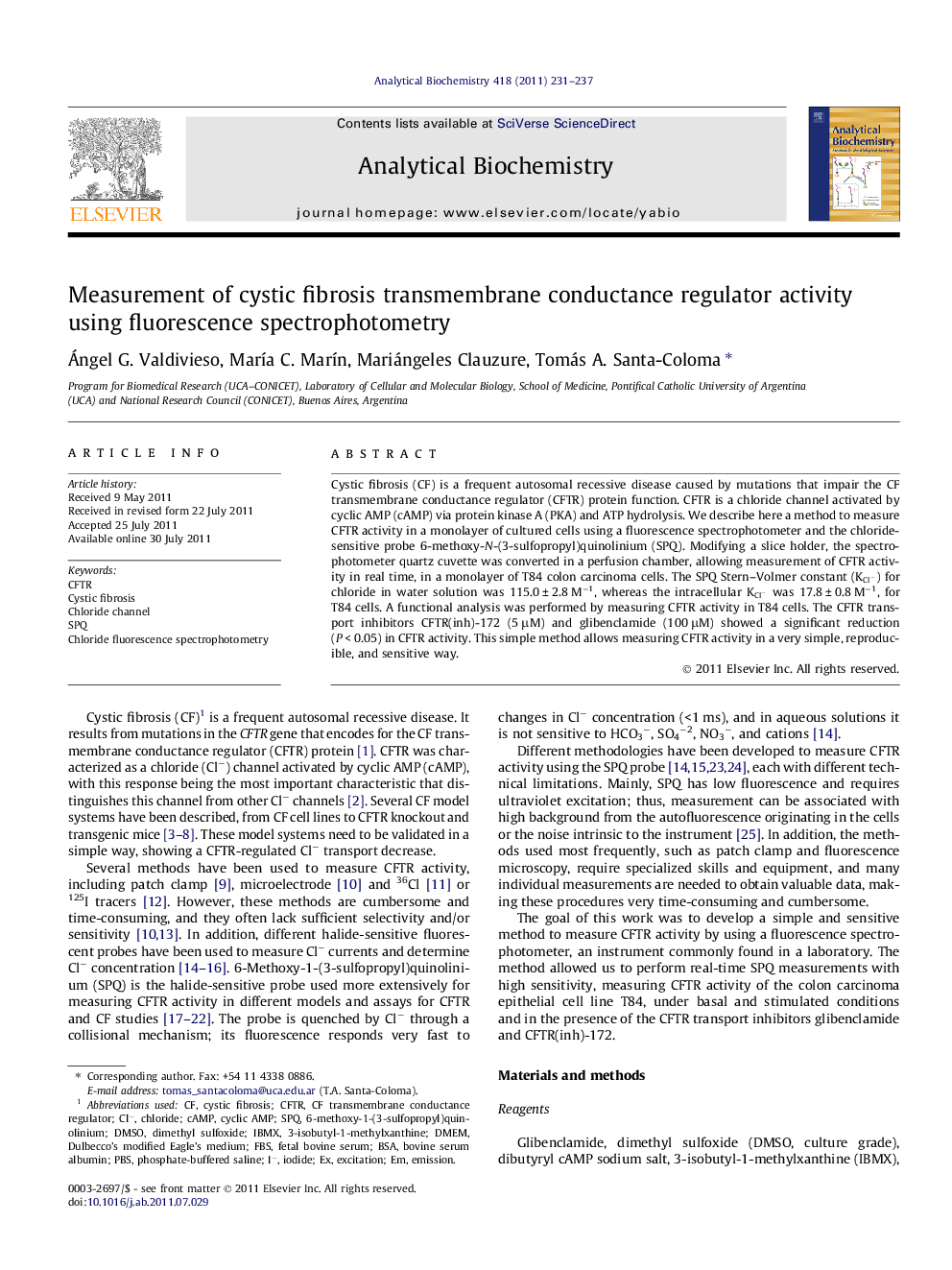| Article ID | Journal | Published Year | Pages | File Type |
|---|---|---|---|---|
| 1176873 | Analytical Biochemistry | 2011 | 7 Pages |
Abstract
Cystic fibrosis (CF) is a frequent autosomal recessive disease caused by mutations that impair the CF transmembrane conductance regulator (CFTR) protein function. CFTR is a chloride channel activated by cyclic AMP (cAMP) via protein kinase A (PKA) and ATP hydrolysis. We describe here a method to measure CFTR activity in a monolayer of cultured cells using a fluorescence spectrophotometer and the chloride-sensitive probe 6-methoxy-N-(3-sulfopropyl)quinolinium (SPQ). Modifying a slice holder, the spectrophotometer quartz cuvette was converted in a perfusion chamber, allowing measurement of CFTR activity in real time, in a monolayer of T84 colon carcinoma cells. The SPQ Stern-Volmer constant (KCl-) for chloride in water solution was 115.0 ± 2.8 Mâ1, whereas the intracellular KCl- was 17.8 ± 0.8 Mâ1, for T84 cells. A functional analysis was performed by measuring CFTR activity in T84 cells. The CFTR transport inhibitors CFTR(inh)-172 (5 μM) and glibenclamide (100 μM) showed a significant reduction (P < 0.05) in CFTR activity. This simple method allows measuring CFTR activity in a very simple, reproducible, and sensitive way.
Related Topics
Physical Sciences and Engineering
Chemistry
Analytical Chemistry
Authors
Ángel G. Valdivieso, MarÃa C. MarÃn, Mariángeles Clauzure, Tomás A. Santa-Coloma,
